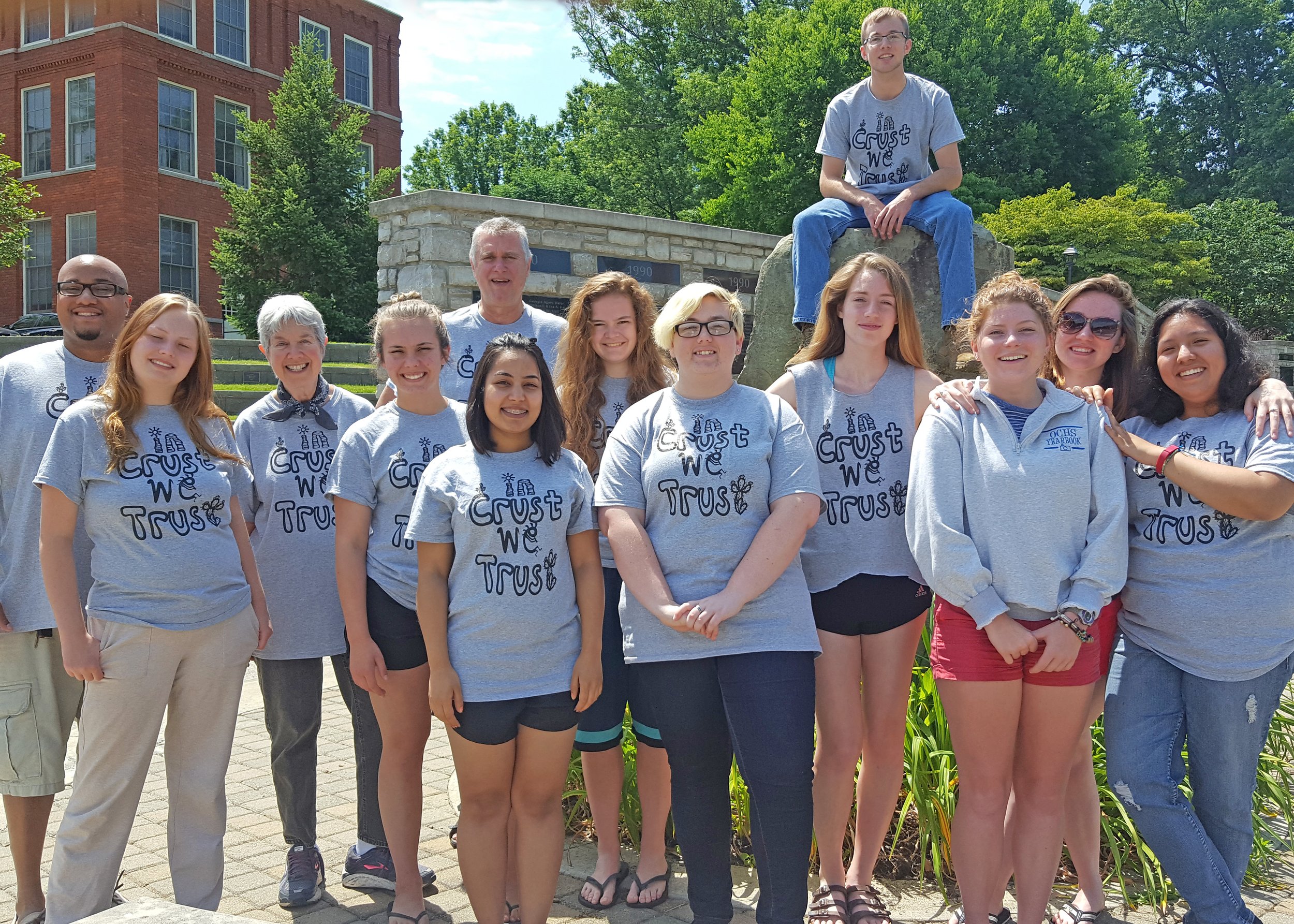Teaching
“For our next class, I want you to memorize the first eleven lines of this poem.” And she read it aloud, twice, her voice a blessing.
The bud
stands for all things,
even for those things that don’t flower,
for everything flowers, from within, of self-blessing;
though sometimes it is necessary
to reteach a thing its loveliness,
to put a hand on its brow
of the flower
and retell it in words and in touch
it is lovely
until it flowers again from within, of self-blessing…
Thus I came to know Galway Kinnell’s “St. Francis and the Sow”—as a fearful forty-year-old, taking my first class in writing poetry, with poet Marilyn Kallet at the University of Tennessee. Despite my doctorate, literary scholarship, and years of teaching, I was a novice at poetry-writing, a bud not yet in flower.
I write poems now, and teach others to write them too, along with essays and news stories and arguments. I know writing’s hard. Many students resist it. Even I don’t always love it, don’t always think I’m good at it. But I believe everyone’s a writer. We all use language to make sense of ourselves and our worlds, we all have stories worth telling. My teaching of writing springs from an essential affirmation and belief—an affirmation of the writer’s self and a belief in her potential for growth.
Kinnell’s poem embodies my teaching core. The poem reminds me that all my students can learn: my calling is to help them re-discover their essential loveliness. Sometimes this teaching comes through words, as I help a writer see where his language and thought catch fire. Sometimes it comes through “touch”—a wordless openness to the silences that hover at the edges of the page. Always it comes through presence to the self and the work.
And Kinnell’s poem reminds me that I must nurture myself so that I too, as teacher, writer, and learner, may continue to flower.
From Libby Falk Jones, “Galway Kinnell’s ‘St. Francis and the Sow,’” in Teaching with Fire: Poetry that Sustains the Courage to Teach. Ed. Sam M. Intrator & Megan Scribner. San Francisco: Jossey-Bass, 2003. 130-31.
Teaching/Writing A Collage
I. Evolution of a (Writing) Teacher: Three Critical Moments
One: I learn to learn.
Fall, 1967. My first semester of grad school in English at SUNY Stony Brook. My hardest class (though none of them is easy): Eighteenth-century Literature – Boswell and Johnson, with Professor Thomas Rogers. He seems nice, like Jiminy Cricket – calls us respectfully by our last names, using “Miss” and “Mrs.” accurately – but I’m terrified.
Sure, I had a good undergraduate record at a good school – but as a history major. Plus I’ve been out of school for a year, writing copy for a pharmaceutical company and reading novels on my lunch breaks. My motivation is strong – I know I love literature and I’m eager to learn – but my ignorance is deep. Stuart, from Brandeis, has read everything, twice. Saul, from SUNY Albany, is already teaching. A transplanted Southerner, I don’t think I fit.
If I stick it out in grad school, one day I’ll be up there at the blackboard, so I watch all my professors with a new consciousness. The second day of class is on Johnson’s “Rambler 151.” Mr. Rogers calls on me to state the thesis. I have “read” the assignment – passing my eyes over the pages – but have not grasped its heart. Even more shameful, I’m not familiar with the term “thesis.” Mr. Rogers explains that it’s the conclusion, what Johnson wants us to take away from the essay.
Teaching as a Writer
by Libby Falk Jones
I’ve been teaching in the college classroom since 1967 when, as a second-year graduate student armed with The Norton Reader, I walked into a freshman composition section at the State University of New York at Stony Brook. Barely six years older than my students, I addressed them as “Mr.” and “Miss” until midterm, when they told me they wanted to learn one another’s first names. The first day, I passed out a syllabus with the term’s reading and writing assignments, most stolen from third-year teaching friends. Standing at the blackboard through the term, I led class discussions from questions on index cards, questions I designed to take the students to the major insights I thought the readings offered. In the margins of students’ essays, I wrote copious explanations of grammatical rules, hoping not to see those same mistakes in the writers’ next papers. Despite my inexperience, my students’ writing improved, a testimonial to my enthusiasm and Annie Dillard’s claim that the blank page will teach us to write. Perhaps more important, my students liked me; I got good evaluations at the end of the term. I was hooked.
I Ask My Students
to stretch
into silence
between among within
(a writer’s reach
should exceed her grasp)
to listen
to the world to words
music on the page
music of the spheres
to write
write it all, now hold nothing back
words yielding more words
a faucet you cannot will not
turn off
to be here go there
essay sashay
show up sit down
speak up speak out
to journey
with me
into language.
–Libby Falk Jones
